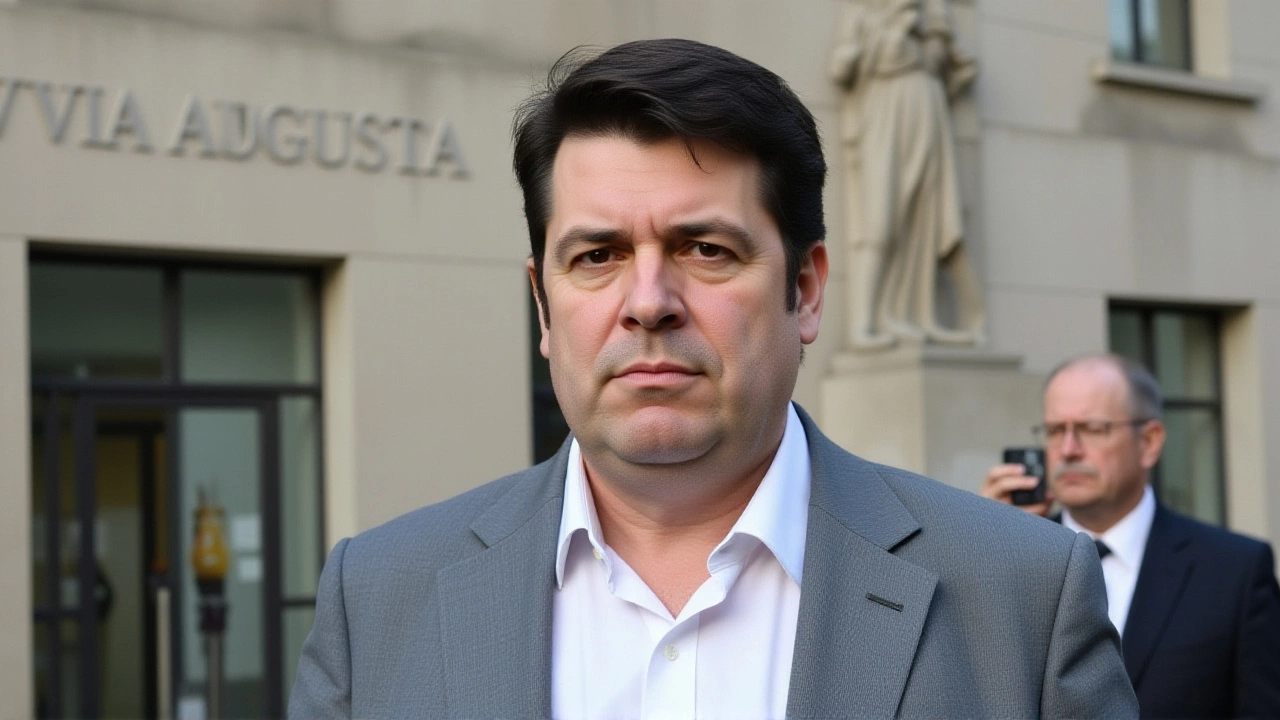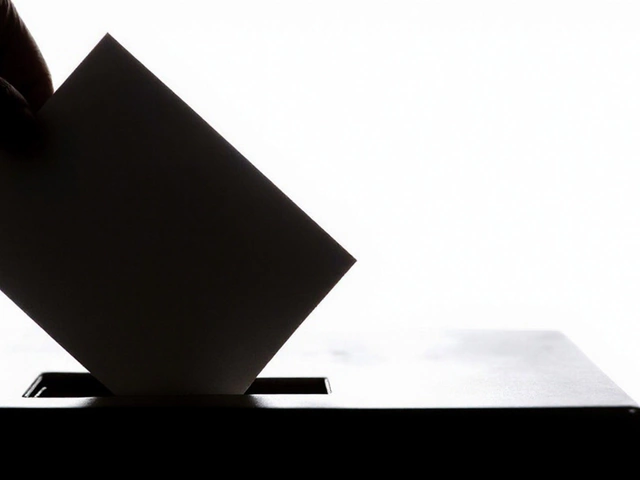When Graham Linehan, the Irish writer and co-creator of the beloved BBC sitcom Father Ted, walked out of a UK courtroom last month, he left behind a guilty verdict on one charge — and a clean slate on another. He was found guilty of criminal damage to a mobile phone belonging to an unnamed trans activist, but acquitted of harassment via social media. The decision, delivered in late November 2023, marks a pivotal moment in a years-long public battle between Linehan and transgender rights advocates, one that has fractured friendships, cost him professional relationships, and turned him into a lightning rod in culture wars across the English-speaking world.
The Incident That Sparked the Case
The phone damage occurred in June 2022, according to court filings reviewed by legal sources. The activist, whose identity remains protected, reported that Linehan smashed her smartphone with a hammer outside a London café during a brief, unannounced confrontation. Witnesses said the act was sudden and deliberate — no words were exchanged before the strike. The device, a Samsung Galaxy S21, was rendered unusable, with the screen shattered and internal components bent. Police recovered the hammer from Linehan’s coat pocket. He later told officers he acted because he felt "threatened" by the activist’s public criticism of his views on gender identity, though he never claimed self-defense in court.
Why the Harassment Charge Fell Apart
While the damage charge was straightforward — the phone was destroyed, and Linehan admitted to doing it — the harassment allegation collapsed under scrutiny. Prosecutors had cited over 80 tweets and Facebook posts made between 2018 and 2021 targeting the activist. But the defense successfully argued that none of the posts contained direct threats, doxxing, or targeted abuse. Many were opinion pieces about gender policy, re-tweets of news articles, or replies to public figures. The judge ruled that while Linehan’s views were "deeply offensive" to many, they did not meet the legal threshold for criminal harassment under the Malicious Communications Act 1988. "Freedom of speech, however unpopular, remains a cornerstone of British law," the judge noted during sentencing proceedings.
Linehan’s Public Battle With Trans Advocacy
Since 2018, Linehan has become one of the most visible critics of gender self-identification policies in the UK. He co-founded the group Woman’s Place UK, which opposes changes to the Gender Recognition Act. His public statements — including a 2020 Twitter thread comparing gender identity activism to "religious fundamentalism" — drew condemnation from Stonewall and Mermaids. He lost writing credits on two TV projects, and his name was removed from the credits of a 2021 Father Ted anniversary special. Yet he retains a vocal following among those who believe gender identity discourse has silenced legitimate debate.
What This Verdict Means for Free Speech and Safety
The case has ignited fierce debate. Free speech advocates see the acquittal on harassment as a win — a reminder that offensive speech isn’t criminal speech. But trans rights groups warn it sends a dangerous signal: that physical violence is treated more severely than years of online vilification. "Damaging a phone is a crime — but so is making someone feel unsafe in their own home because of what you post," said Dr. Elena Ruiz, a gender studies professor at the University of Edinburgh. "This verdict doesn’t resolve the tension between speech and safety. It just pushes it into the shadows."
Linehan, 55, has not publicly commented on the verdict. His legal team confirmed he will not appeal the damage conviction. Sentencing is scheduled for December 15, 2023, at the Southwark Crown Court. He faces up to six months in jail or a fine — but restitution for the phone, estimated at £680, is likely required.

What Comes Next?
The activist has indicated she may pursue a civil lawsuit for damages and emotional distress. Meanwhile, Linehan’s publisher, HarperCollins, has paused plans for his upcoming memoir, God, the Gays, and Me. His name still appears on the credits of Father Ted reruns — but streaming platforms have quietly removed his name from behind-the-scenes features. The BBC has declined to comment.
Historical Context: A Career in the Crosshairs
Linehan rose to fame in the 1990s with Father Ted, a surreal sitcom about three Catholic priests on a remote Irish island. It was critically acclaimed, won BAFTAs, and remains a cult favorite. But his later work — including a 2017 play about gender identity that was canceled after protests — turned him into a polarizing figure. In 2020, he was disinvited from a Dublin literary festival after a petition gathered 12,000 signatures. His public persona shifted from beloved writer to controversial activist. This case isn’t just about a phone. It’s about where society draws the line between dissent and danger.
Frequently Asked Questions
What charges could Graham Linehan face in the future?
While the criminal case is closed, the trans activist may file a civil suit for emotional distress or invasion of privacy. Linehan could also face professional consequences — such as loss of future writing contracts or public funding — but no criminal charges beyond the current conviction are pending. His upcoming sentencing on December 15, 2023, will determine fines or jail time for the phone damage.
Why wasn’t the activist’s identity revealed?
UK courts routinely protect the identities of individuals in harassment or hate crime cases to prevent further targeting. Given the activist’s public advocacy work, revealing her name could expose her to online abuse or threats. Legal teams often request anonymity when safety is a concern, especially in high-profile culture war cases.
How does this case compare to similar legal battles?
It mirrors the 2021 case of J.K. Rowling, who was sued for gender-critical comments but cleared of harassment under UK law. Both cases hinge on whether speech crosses into criminal conduct. Unlike Rowling, Linehan committed a physical act — smashing a phone — which made the damage charge easier to prove. The key difference: Rowling’s case was civil; Linehan’s was criminal, raising the stakes.
What’s the legal definition of harassment in the UK?
Under the Protection from Harassment Act 1997, harassment requires a "course of conduct" — at least two incidents — that causes alarm or distress. The Crown Prosecution Service must prove the accused knew or should have known their behavior was harassing. In Linehan’s case, the court found his social media activity, while offensive, didn’t meet that threshold.
Is this verdict likely to influence future cases?
Yes. Legal scholars say this case could set a precedent for how courts distinguish between offensive speech and actionable harassment. If future defendants can show their posts are political opinions — even if harsh — they may find greater protection. But physical acts like damaging property remain clear-cut crimes, regardless of motive.
How has the public reacted to the verdict?
Reactions have been sharply divided. On social media, Linehan’s supporters celebrated the acquittal as a victory for free speech. Meanwhile, LGBTQ+ advocacy groups called the guilty verdict on phone damage "long overdue," but lamented that the harassment charge didn’t stick. Protests are planned outside Southwark Crown Court on sentencing day, with both sides preparing to make their case to the public.





